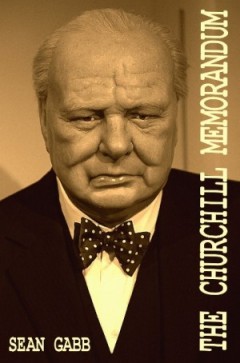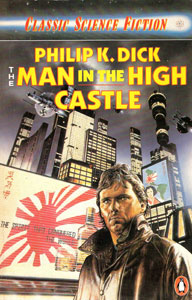I recently read The Churchill Memorandum, by English libertarian Sean Gabb. I devoured most of it on a transatlantic flight, and finished the last bit on terra firma. I tend to like thrillers (some favorite authors include Nelson DeMille and, of late, Cherie Priest, author of Bloodshot); alternate history (e.g., Harry Turtledove, Brad Linaweaver’s Moon of Ice, L. Neil Smith’s The Probability Broach); and books with libertarian themes or influences (L. Neil Smith, Ayn Rand, Henry Hazlitt, Brad Linaweaver, Victor Koman, J. Neil Schulman). So it’s no surprise I enjoyed The Churchill Memorandum, which is very well written and which combines all three features (full disclosure: Gabb is a friend).
The novel is set in 1959, in an alternate history in which Hitler died in a car accident in 1939, thus averting WWII and changing the course of history. Gabb’s libertarian influences — he’s the head of the UK Libertarian Alliance — as well as his deep historical knowledge, are evident throughout the book. The novel depicts amazing technological progress — some of it rivaling or exceeding 2011 levels — in 1959, since WWII did not occur to sap away the economic strength and entrepreneurial innovations of tens of millions of individuals who would otherwise have been eviscerated in state war. So in 1959 there are magnetic bullet trains, home energy generators, and many other seemingly fantastic innovations.
The story follows the adventures of one Anthony Markham, a Churchill historian who, on a trip to the now-fascist police-state and isolationist America to research the Churchill archives at Harvard, stumbles across an explosive document that purports to document secret pacts that changed the course of American and world history. This leads to an intriguing geopolitical thriller informed by the author’s libertarian views. It is told in first person point of view (POV), my personal favorite for thrillers (and other novels) since it forces the narrator to show not tell, and not to omnisciently cheat and reveal details the protagonist would not know. Gabb’s ambivalent and somewhat bipolar English attitude towards America — at once a great power and friend of England, and a schizophrenic and dangerous destroyer of the ancient European order and institutions — is present throughout; and as a skeptic of the American mythos myself, I really enjoyed this foreign perspective. (Gabb recently presented a talk on “The Case Against the American War of Independence.”)














